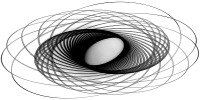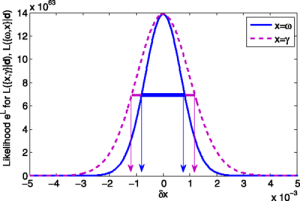Sophie Schirmer, Frank Langbein. The ubiquitous problem of learning system parameters for dissipative two-level quantum systems: Fourier analysis versus Bayesian estimation. Phys Rev A, 91:022125, 2015. [DOI:10.1103/PhysRevA.91.022125] [arXiv:1412.4282] [PDF]
We compare the accuracy, precision and reliability of different methods for estimating key system parameters for two-level systems subject to Hamiltonian evolution and decoherence. It is demonstrated that the use of Bayesian modelling and maximum likelihood estimation is superior to common techniques based on Fourier analysis. Even for simple two-parameter estimation problems, the Bayesian approach yields higher accuracy and precision for the parameter estimates obtained. It requires less data, is more flexible in dealing with different model systems, can deal better with uncertainty in initial conditions and measurements, and enables adaptive refinement of the estimates. The comparison results shows that this holds for measurements of large ensembles of spins and atoms limited by Gaussian noise as well as projection noise limited data from repeated single-shot measurements of a single quantum device.
![]() This work is licensed under a Creative Commons Attribution-NonCommercial-ShareAlike 4.0 International License.
This work is licensed under a Creative Commons Attribution-NonCommercial-ShareAlike 4.0 International License.

